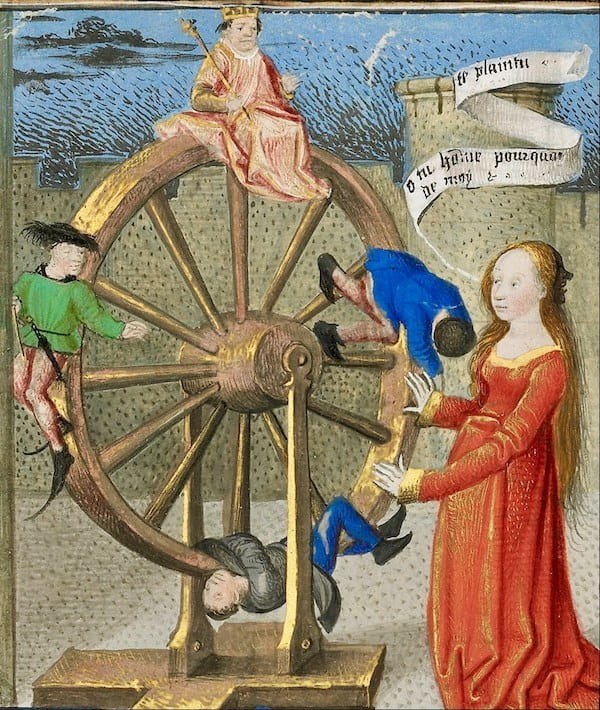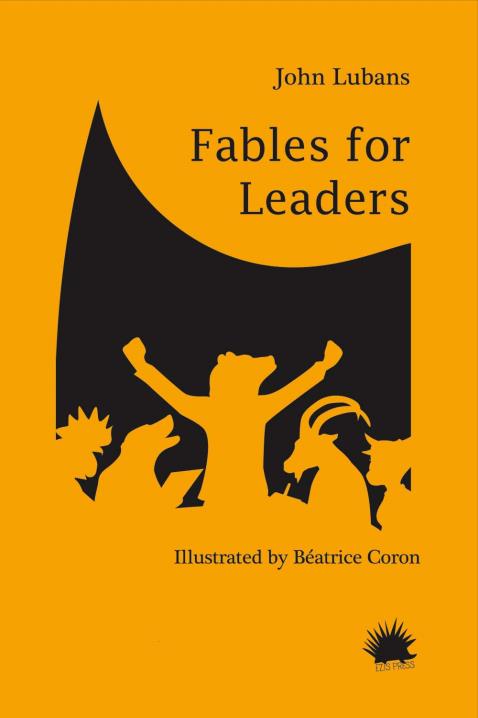Luck or Skill?

Caption: Lady Fortune at Her Wheel*
I recall from my undergraduate literature classes the medieval concept about Lady Fortune’s whimsies; one day you are on top (a monarch) and the next day you are a beggar, barely holding on.
The above illustration comes from a book about Boethius in which mistress “Philosophy demonstrates that Fortune rules the world and that the wise person ignores her ever-shifting ways, preferring eternal truths.”
The puzzle is knowing what’s an eternal truth.
Wilmot Kidd, an investment manager whose success rivals Warrant Buffet must have a few eternal truths to which he ascribes. When asked if his success was due to luck or skill he responded:
“Skill is just recognizing when you’ve gotten lucky.”
He explains the paradox, “It’s when you’ve been fortunate enough to make an investment in a great company, and suddenly you realize just how very lucky you were, and you buy more. That’s skill, I suppose. That—and holding on to what you have and not chickening out.”
Dwell on that.
Here’s a leader brave enough to admit luck plays a role in his success, but more so does holding on and “not chickening out.” In other words, focus on the long term over the short term gain.
I have to agree.
Were it not for chance meetings, being in the right place at the right time, I’d likely have had a different career path.
For the most part, if I had good fortune in some undertaking, I would keep doing whatever got me to the good luck part.
Looking back on my career, I had a “great ride”, as they say in NASCAR, but then one day it changed.
When it did, Fortune's Wheel from my literature classes popped into my head. I could now identify with the Sad Sack at the bottom of the wheel.
It’s not much of a stretch – for me - while contemplating the role of luck vs. skill in leadership to hark back to Arthur Conan Doyle’s sleuth extraordinaire and champion of ratiocination: the inimitable Sherlock Holmes.
Holmes had a literary competitor by the name of Paul Beck, a creation of M. McDonnell Bodkin (1850-1933).
While Sherlock Holmes was the ultimate logical reasoner, Bodkin’s Beck went a contrary (and a deliberately plodding) other way:
"I just go by the rule of thumb, and muddle and puzzle out my cases as best I can."
Nor did he minimize good luck. When congratulated by a client in solving a case he responded: “I was lucky, as usual, that's all."
Beck attributes his success to luck and common sense not ratiocination.
I’ve had the experience of not letting go of a pet idea and unwilling to change course.
Like the hedgehog in the fox and hedgehog parable I was convinced of One Big Thing and became fodder for Lady Fortune.
Unswerving allegiance to “one way” is not an eternal truth.
The flexible fox on the other hand is like Mr. Beck, willing to go with whatever rule of thumb may apply.
He enjoys a free-wheeling creativity, puzzles over possible causes, tries things, and learns from mistakes. Yet, he can be playfully inscrutable.
Ylvis and Brer Fox would agree, I think, that “Change is Fortune’s normal behavior" and change, alas, is an eternal truth.
*Detail from “Philosophy Consoling Boethius and Fortune Turning the Wheel” by Henri de Vulcop? about 1460–1470. Paris, France.
------------------
Still available

And, don’t forget my book on democratic workplaces, Leading from the Middle
© Copyright text by John Lubans 2022

 John Lubans - portrait by WSJ
John Lubans - portrait by WSJ